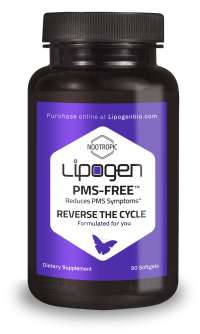Can Stress Exacerbate PMS Symptoms?

There may be reasons why premenstrual syndrome used to be called “premenstrual tension”.
As if being stressed isn’t bad enough, a study on women’s health shows that women who are worried and anxious can also expect more severe premenstrual syndrome (PMS) symptoms.
The study, published in the Journal of Women’s Health, shows that stress early in a woman’s menstrual cycle is a risk factor for PMS symptoms – both emotional and physical.
What is the link between stress, premenstrual tension and PMS symptoms?
The researchers found that women suffering from high levels of tension in the two weeks before they got their period were two to three times more likely to suffer — emotional PMS symptoms like depression, sadness, irritability and crying spells as well as physical PMS symptoms including bloating, cramps, back pain and headaches — than those who didn’t experience any stress in the one or two weeks before her menstrual cycle.
Other prevalent PMS symptoms include moodiness, cravings, tender breasts, nausea, clumsiness, fatigue and diarrhea.
While the statistics vary widely, PMS affects some 75% to 85% of women, according to the American College of Obstetricians and Gynecologists.
Of course, PMS is not a one-size fits all problem and some women have more severe symptoms while others may only rarely suffer a PMS symptom. And some lucky women have no premenstrual tension symptoms at all.
Some women have premenstrual dysphoric disorder (PMDD), a more severe form of PMS, and is characterized by emotional and somatic symptoms that recur every month prior to menstruation.
Reducing stress may lower PMS symptoms
So, what is the good news from these premenstrual tension findings? The silver lining is that even if you are stressed, it doesn’t necessarily mean you need to suffer. The researchers pointed to stress-reduction activities like yoga, meditation and exercise to make PMS symptoms more controllable. Exercise is known to help balance a person’s hormones so if you move your body enough PMS symptoms can lessen.
Some women turn to nutritional supplements and a better-balanced diet to take on the symptoms of PMS. Researchers have called for cutting back on caffeine because it can disrupt sleep and not enough shuteye aggravates PMS symptoms. And still others say heat – a hot pillow or hot water bottle – relieves certain physical PMS symptoms.
What does research say about how PMS affects women in the workplace?
When women’s PMS symptoms are so severe, they can miss workdays. A study published in the British Medical Journal shows that every year, there are nearly nine days of lost productivity per woman due to serious PMS symptoms.




